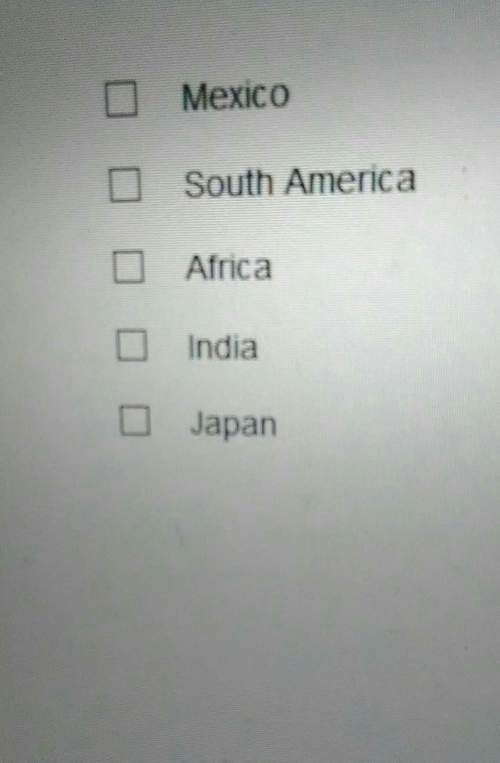
History, 14.10.2020 14:01 crazylife77
Will give Brainliest and extra points Please help
1 In 757 there were several hundred Buddhist priests employed in the palace to conduct religious services; in 765 the Emperor, taking with him two cartloads of the Buddhist Scriptures, proceeded to deposit them in a monastery and to expound their contents. In 768 the Emperor visited a large Buddhist temple which had been built for the repose of his deceased mother, and appointed one thousand priests and nuns, also defraying the expense of annual [liturgies] for her soul. In 810 things came to such a pitch that the Emperor received into the palace with great honour a bone of Buddha, which had been originally brought from India and placed in a monastery, where it was exhibited to the populace once in thirty years, and was supposed to have a beneficial influence upon the crops.
2 The relic was kept for three days in the palace, and then passed round to various Buddhist monasteries, where it was on exhibition. This outrage upon conventions was too much for the Confucianists of the day, as represented by Han Wen-kung [also called Han Yu], one of the greatest in the long roll-call of China’s great men. He had already been degraded sixteen years before, for an offensive memorial on the subject of tax-collection; but now, at the age of fifty-one and full of honours, he rose again to the occasion, and presented another more offensive still.
3 He begins by pointing out that Buddhism is a religion of barbarians, of late introduction into China, and quite unknown to the ancients. He shows that the monarchs of old enjoyed long lives without Buddhism, and that not only the Emperors but also the dynasties of Buddhistic tendencies had always been short-lived; and he further enlarges upon the bad example which will be set by the Emperor to an ignorant people.
4 The memorial ends thus: “Buddha was a barbarian. His language was not the language of China. His clothes were of an alien cut. He did not teach the maxims of our ancient rulers, nor conform to the customs which they had handed down. He did not appreciate the bond between prince and subject, the tie between father and son. Supposing, indeed, that this Buddha had come to our capital in the flesh, under an appointment from his own State, then your Majesty might have received him with a few words of admonition, bestowing on him a banquet and a suit of clothes, previous to sending him out of the country with an escort of soldiers, and thereby have avoided any dangerous influence on the minds of the people. But what are the facts? The bone of a man long since dead and decomposed, is admitted, forsooth, within the precincts of the Imperial palace! Did not Confucius say, ‘Revere spiritual beings, while maintaining always a due reserve’?
5 When the princes of old paid visits of condolence to one another, it was customary for them to send on a magician in advance, with a peach-wand in his hand, whereby to expel all noxious bewitchments previous to the arrival of his master. Yet now your Majesty is about to introduce, without cause, a disgusting object, personally taking part in the proceedings without the intervention either of the magician or of his peach-wand. Of the officials, not one has raised his voice against it; of the censors, not one has pointed out the enormity of such an act. Therefore your servant, overwhelmed with shame at such slackness, now implores your Majesty that the bone may be handed over for destruction by fire or water, whereby the root of this great evil may be exterminated for all time, and the people know how much the wisdom of your Majesty surpasses that of ordinary men. The glory of such a deed will be beyond all praise. And should the Lord Buddha have power to avenge this insult by the infliction of some misfortune, then let the vials of his wrath be poured out upon the person of your servant, who now calls God to witness that he will not repent him of his oath. In all gratitude and sincerity, and with fear and trembling, your servant now humbly presents this memorial for your Majesty’s benign consideration.”
Which of the following statements best describes one of the reasons Buddhism spread widely during the Tang dynasty?
It was very adaptable to different societies and classes of people.
It kept women in the home.
It preserved traditional familial roles and property rights.

Answers: 1


Another question on History


History, 22.06.2019 02:00
Whose plan centered on keeping the federal budget balanced, instituting tax cuts, and developing public works projects?
Answers: 1

History, 22.06.2019 06:00
Using reputable online news sources, find an article about a current event that has happened within the last 12 months that deals with any of the ideas that came about during the enlightenment. for example, you might choose an event that involves freedom of speech, religious tolerance, or the right to vote. alternately, you can choose an event where these values or ideas are absent and would make a tremendous difference if they were present. once you have chosen an event, answer the following questions: what website did you use for your research? what is the title of your article? who is the author of your article? what is the event you read about?
Answers: 3

History, 22.06.2019 08:50
Witch statement about the fall of rome and is effect on culture and civilvison in western eurpoe is correct
Answers: 2
You know the right answer?
Will give Brainliest and extra points Please help
1 In 757 there were several hundred Buddhist prie...
Questions

Mathematics, 25.03.2021 06:30




Mathematics, 25.03.2021 06:30


Mathematics, 25.03.2021 06:30

Physics, 25.03.2021 06:30

Mathematics, 25.03.2021 06:30


Mathematics, 25.03.2021 06:30

Mathematics, 25.03.2021 06:30

Mathematics, 25.03.2021 06:30


Mathematics, 25.03.2021 06:30

English, 25.03.2021 06:30

Mathematics, 25.03.2021 06:30

Physics, 25.03.2021 06:30

Geography, 25.03.2021 06:30

Chemistry, 25.03.2021 06:30




